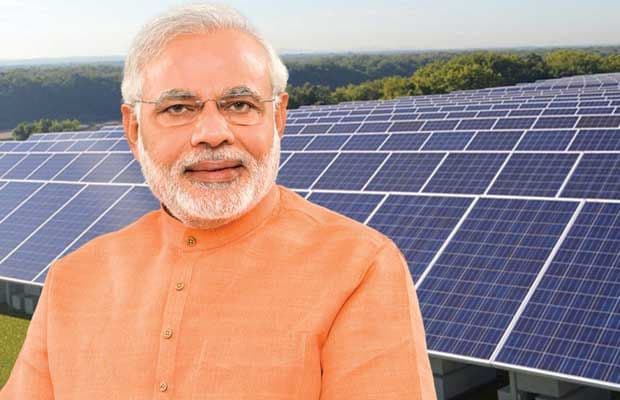
Pm Modi Launches Pradhan Mantri Suryodaya Yojana
In a significant move aimed at transforming India's rural landscape and bolstering its renewable energy sector, Prime Minister Narendra Modi launched the Pradhan Mantri Suryodaya Yojana (PMSY). This ambitious scheme, which translates to the Prime Minister's Solar Power Scheme, is poised to bring about a paradigm shift in the country's energy ecosystem by harnessing the abundant solar energy potential in rural areas. Let's delve deeper into the scheme's objectives, features, and its potential impact on India's socio-economic fabric.
Objectives of Pradhan Mantri Suryodaya Yojana:
The primary goal of the Pradhan Mantri Suryodaya Yojana is to provide reliable and affordable electricity supply to rural areas, particularly during daytime hours when demand is often at its peak. The scheme aims to achieve this by promoting the installation of solar-powered agricultural pumps, thereby reducing dependency on traditional grid-based electricity and diesel generators. By leveraging solar energy, the government seeks to enhance agricultural productivity, empower farmers, and foster rural development.
Key Features of the Scheme:
Solar-Powered Agricultural Pumps: Under the PMSY, farmers in rural areas will be provided with solar-powered agricultural pumps to irrigate their fields. These pumps will enable farmers to access reliable electricity for their agricultural activities, thereby increasing crop yields and ensuring food security.
Subsidized Installation: To make solar technology more accessible to farmers, the government will offer subsidies and financial incentives for the installation of solar pumps. This will help offset the initial investment costs and encourage widespread adoption of solar energy solutions.
Grid Connectivity: While the scheme primarily focuses on decentralized solar power generation, it also emphasizes the integration of solar energy with the existing power grid. This integration will ensure seamless power supply to rural areas, even during periods of low solar irradiance or high demand.
Capacity Building: The PMSY also includes provisions for capacity building and skill development among rural communities. Training programs will be conducted to educate farmers about the installation, operation, and maintenance of solar-powered equipment, empowering them to become self-reliant in managing their energy needs.
Significance of Pradhan Mantri Suryodaya Yojana:
Energy Access and Rural Development: The PMSY holds immense significance in addressing the energy access challenges faced by rural India. By providing clean and reliable electricity to remote villages, the scheme will catalyze rural development, spur economic growth, and improve living standards.
Renewable Energy Transition: India has set ambitious targets for renewable energy deployment as part of its commitment to combat climate change. The PMSY aligns with these objectives by promoting the adoption of solar energy, reducing greenhouse gas emissions, and mitigating the environmental impact of conventional energy sources.
Empowering Farmers: Agriculture is the backbone of India's economy, and farmers constitute a significant portion of the rural population. By equipping farmers with solar-powered irrigation systems, the PMSY empowers them to enhance productivity, reduce input costs, and increase their income, thereby contributing to agricultural sustainability and rural livelihoods.
Energy Security: Diversifying the energy mix and reducing dependency on fossil fuels is crucial for ensuring energy security and mitigating energy-related risks. The PMSY's emphasis on decentralized solar power generation strengthens India's energy resilience by harnessing indigenous renewable resources and reducing reliance on imported energy sources.
In conclusion, the launch of the Pradhan Mantri Suryodaya Yojana marks a significant milestone in India's journey towards sustainable development and energy transition. By leveraging solar panels to address rural electrification challenges, the scheme not only facilitates energy access but also fosters socio-economic empowerment, environmental sustainability, and energy security. As the country embarks on this transformative path, the PMSY stands out as a beacon of hope, paving the way for a brighter and more inclusive future for all citizens, especially those in rural areas.
Appreciate the creator